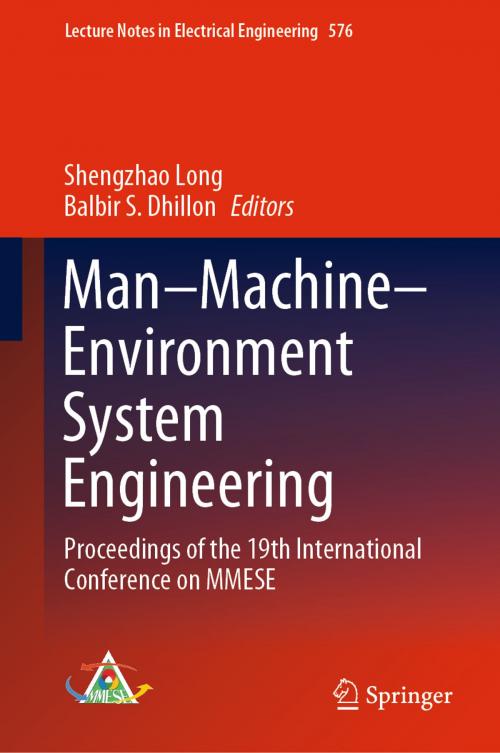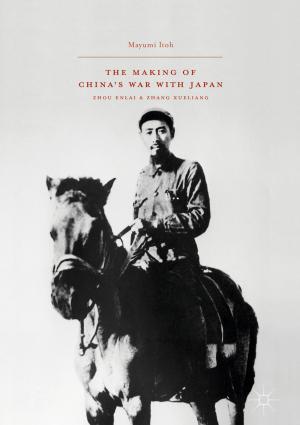Man–Machine–Environment System Engineering
Proceedings of the 19th International Conference on MMESE
Nonfiction, Science & Nature, Technology, Robotics, Computers, Advanced Computing, Artificial Intelligence| Author: | ISBN: | 9789811387791 | |
| Publisher: | Springer Singapore | Publication: | August 16, 2019 |
| Imprint: | Springer | Language: | English |
| Author: | |
| ISBN: | 9789811387791 |
| Publisher: | Springer Singapore |
| Publication: | August 16, 2019 |
| Imprint: | Springer |
| Language: | English |
These proceedings showcase the best papers selected from more than 500 submissions, and introduce readers to the latest research topics and developmental trends in the theory and application of MMESE. The integrated research topic Man–Machine–Environment System Engineering (MMESE) was first established in China by Professor Shengzhao Long in 1981, with direct support from one of the greatest modern Chinese scientists, Xuesen Qian. In a letter to Long from October 22nd, 1993, Qian wrote: “You have created a very important modern science and technology in China!”
MMESE studies the optimum combination of man–machine–environment systems. In this system, “man” refers to the people in the workplace (e.g. operators, decision-makers); “machine” is the general name for any object controlled by man (including tools, machinery, computers, systems and technologies), and “environment” describes the specific working conditions under which man and machine interact (e.g. temperature, noise, vibration, hazardous gases, etc.). The three main goals of optimizing man–machine–environment systems are to ensure safety, efficiency and economy.
These proceedings present interdisciplinary studies on concepts and methods from physiology, psychology, system engineering, computer science, environmental science, management, education, and other related disciplines. They offer a valuable resource for all researchers and professionals whose work involves interdisciplinary areas touching on MMESE subjects.
These proceedings showcase the best papers selected from more than 500 submissions, and introduce readers to the latest research topics and developmental trends in the theory and application of MMESE. The integrated research topic Man–Machine–Environment System Engineering (MMESE) was first established in China by Professor Shengzhao Long in 1981, with direct support from one of the greatest modern Chinese scientists, Xuesen Qian. In a letter to Long from October 22nd, 1993, Qian wrote: “You have created a very important modern science and technology in China!”
MMESE studies the optimum combination of man–machine–environment systems. In this system, “man” refers to the people in the workplace (e.g. operators, decision-makers); “machine” is the general name for any object controlled by man (including tools, machinery, computers, systems and technologies), and “environment” describes the specific working conditions under which man and machine interact (e.g. temperature, noise, vibration, hazardous gases, etc.). The three main goals of optimizing man–machine–environment systems are to ensure safety, efficiency and economy.
These proceedings present interdisciplinary studies on concepts and methods from physiology, psychology, system engineering, computer science, environmental science, management, education, and other related disciplines. They offer a valuable resource for all researchers and professionals whose work involves interdisciplinary areas touching on MMESE subjects.















